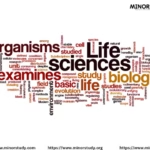Bachelor of Science (BSc) in Bioveterinary Science
Faculty: Agriculture Type: Bachelor Honours, Major
The Bachelor of Science (BSc) in Bioveterinary Science is a specialized program that focuses on the scientific study of animal health and veterinary practices. It integrates aspects of biology, veterinary science, animal husbandry, and agriculture to prepare students for careers in animal healthcare, veterinary diagnostics, animal research, and agriculture. This degree program provides a strong foundation for students interested in improving animal health, welfare, and productivity while addressing challenges in food security, zoonotic diseases, and veterinary medicine.
Key Learning Outcomes
Understanding of Animal Health: Gain knowledge of animal physiology, anatomy, and the biology of diseases that affect livestock and companion animals.
Veterinary Science Knowledge: Learn about veterinary diagnostics, preventive care, and treatments for animal diseases.
Research and Diagnostic Skills: Develop skills in laboratory techniques and diagnostic tools used in veterinary science, including microbiological, biochemical, and molecular analyses.
Animal Welfare and Ethics: Understand ethical issues related to animal health and welfare, and how to ensure ethical practices in veterinary care and agricultural settings.
Interdisciplinary Knowledge: Acquire an understanding of agriculture, microbiology, immunology, and pharmacology in the context of veterinary science.
Core Curriculum
The curriculum includes foundational courses in biology and veterinary science, along with specialized courses in animal health and bioveterinary practices. Students will also gain hands-on experience through laboratory work, field studies, and internships.
Foundational Courses
Introduction to Veterinary Science
An overview of veterinary science, animal health, and the role of bioveterinary science in animal care and agriculture.
Animal Anatomy and Physiology
Study of the structure and function of animal organs and systems, focusing on both companion and livestock animals.
Microbiology
Study of microorganisms and their roles in animal health, including pathogens that cause diseases in animals.
Animal Genetics
Exploration of genetic principles and their application in animal breeding, health, and disease resistance.
Intermediate Courses
Pathology and Parasitology
Study of animal diseases, including infectious diseases, parasites, and their effects on animal health.
Veterinary Pharmacology
Understanding of medications, dosages, and treatments used in veterinary practices for disease prevention and management.
Immunology in Animal Health
Study of the immune system in animals, including how it responds to infections and the development of vaccines.
Nutrition and Animal Health
Focus on the nutritional needs of animals, including the impact of diet on health, growth, and productivity.
Advanced Topics
Bioveterinary Diagnostics
Learn diagnostic techniques and technologies used to identify diseases in animals, including laboratory testing and imaging techniques.
Veterinary Epidemiology
Study of disease patterns in animal populations, disease transmission, and epidemiological methods for controlling outbreaks.
Animal Welfare and Ethics
Explore ethical considerations related to animal health, veterinary practices, and animal use in agriculture.
Zoonotic Diseases
Examination of diseases that can be transmitted between animals and humans, and how to prevent and control them.
Practical Experience
Laboratory Work
Hands-on experiments in microbiology, pathology, and diagnostics, using state-of-the-art laboratory equipment and techniques.
Fieldwork and Veterinary Clinics
Opportunities for fieldwork in animal health management, including internships or placements in veterinary clinics, farms, or research centers.
Animal Health Practicum
Practical training in veterinary procedures, animal handling, and health assessments, often in collaboration with veterinary professionals.
Capstone Project or Research (optional)
Conduct an independent research project in bioveterinary science, under the supervision of faculty or professionals in the field, and present findings in a report or presentation.
Skills Acquired
Veterinary Diagnostic Skills: Ability to use diagnostic tools and laboratory techniques to identify animal diseases.
Animal Care Knowledge: Expertise in animal husbandry, health management, and welfare practices for various species.
Research and Analytical Skills: Ability to conduct scientific research, analyze data, and apply findings to improve animal health practices.
Ethical and Legal Awareness: Understanding of the ethical and legal frameworks surrounding animal care, treatment, and veterinary practice.
Communication Skills: Ability to effectively communicate with clients, veterinary teams, and stakeholders in the agricultural industry.
Career Opportunities
A BSc in Bioveterinary Science opens up various career paths in the veterinary, agriculture, and animal healthcare sectors. Graduates can pursue roles such as:
Veterinary Technician/Technologist
Assisting veterinarians in diagnosing and treating animal diseases, and performing medical procedures.
Veterinary Researcher
Conducting research on animal health, disease prevention, or veterinary medicine, working in academic, governmental, or private research institutions.
Animal Health Consultant
Providing advice and guidance to farms, veterinary clinics, or government agencies on animal health management, disease prevention, and treatment strategies.
Bioveterinary Scientist
Working in bioveterinary science laboratories, focusing on the development of diagnostic tools, vaccines, or treatments for animal diseases.
Livestock Production Manager
Managing livestock health and welfare on farms, ensuring proper veterinary care, disease prevention, and productivity.
Public Health Specialist (Zoonotic Diseases)
Working with governmental or international health organizations to prevent and control zoonotic diseases that affect both animals and humans.
Pharmaceutical or Biotechnology Industry
Working in the development of veterinary pharmaceuticals or biologics, including vaccines, medicines, and animal feed additives.
Why Choose This Degree?
Specialized Focus on Animal Health: This program provides in-depth knowledge and hands-on experience in veterinary science, specifically tailored to the needs of agriculture and animal health.
Growing Field: With the increasing importance of animal health in agriculture, food production, and public health, this degree prepares students for a high-demand career in veterinary and animal sciences.
Interdisciplinary Approach: Students will benefit from a curriculum that combines veterinary science, agriculture, biology, and ethics, offering a holistic approach to animal care and management.
Impactful Work: Graduates can contribute to improving animal welfare, controlling zoonotic diseases, and enhancing food security through better animal health practices.
Conclusion
The BSc in Bioveterinary Science is an excellent choice for students interested in animal health, veterinary medicine, and agricultural science. By offering specialized training in animal diagnostics, veterinary practices, and bioveterinary research, this degree prepares students for impactful careers in veterinary science, public health, and agriculture. The hands-on learning opportunities and interdisciplinary curriculum ensure that graduates are well-equipped to address the health needs of animals and contribute to advancements in the field of bioveterinary science.








